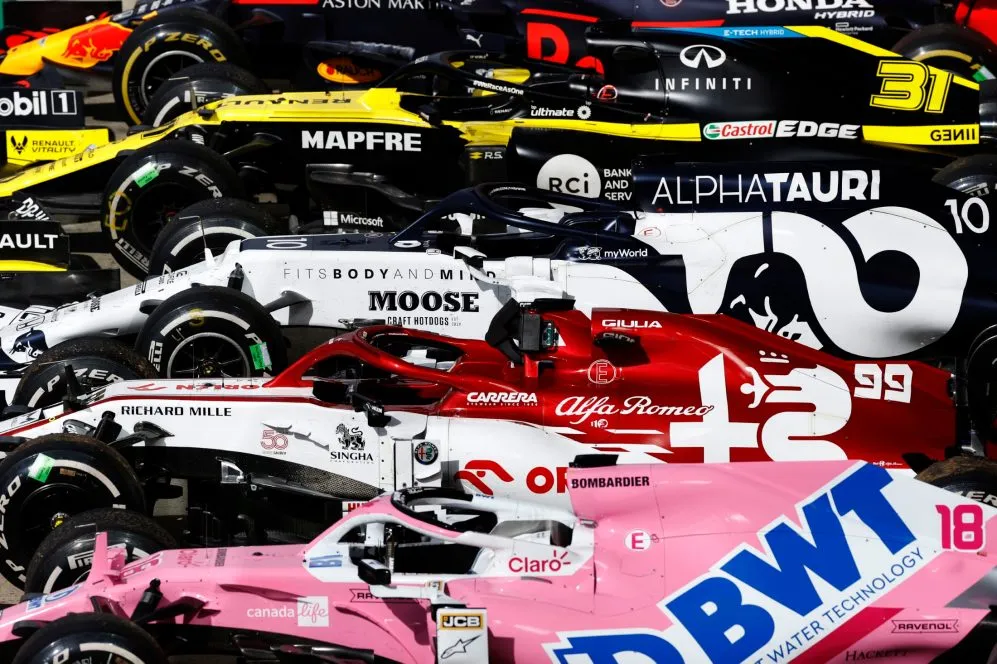
Dicho de esta manera parecería una banalidad. Siempre los motores han representado un aspecto fundamental en la Fórmula 1 y en otras categorías también. No hay duda alguna que Mercedes y Honda son los motores más potentes en la actualidad.
Sin embargo en la máxima categoría del automovilismo deportivo mundial el aspecto aerodinámico ha sido también extremadamente importante.
Adrián Newey, el llamado "mago de la aerodinamia" cuando estaba en Red Bull hizo que el monoplaza que en ese momento guiaba un joven llamado Sebastian Vettel fuera durante cuatro años consecutivos una máquina imbatible, en cualquier circuito.
Sin embargo el título del post tiene la intención de abrir el interrogante no sobre la potencia verdadera y propia de ambos motores, sino sobre su reemplazo. Porque la penalidad que deben sufrir los pilotos -cuando lo hacen- rs sumamente importante, especialmente en un momento como el actual en que la victoria parecería que siempre le toca a uno de los dos, Hamilton o Verstappen, en el orden que Uds. quieran.
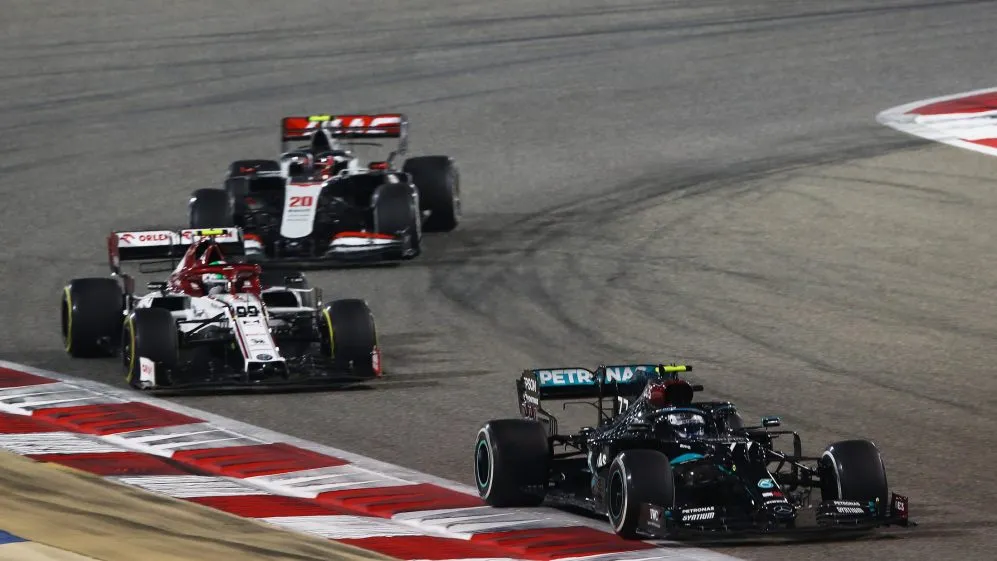
To put it this way would seem banal. Engines have always represented a fundamental aspect in Formula 1 and in other categories as well. There is no doubt that Mercedes and Honda are the most powerful engines today.
However, in the highest category of world motorsport, the aerodynamic aspect has also been extremely important.
Adrian Newey, the so-called "wizard of aerodynamics" when he was at Red Bull made the single-seater that at that time was driven by a young Sebastian Vettel an unbeatable machine for four consecutive years, at any circuit.
However, the title of the post is intended to open the question not about the true and proper power of both engines, but about their replacement. Because the penalty that drivers must suffer -when they do it- is extremely important, especially at a time like the present when the victory seems to always go to one of the two, Hamilton or Verstappen, in the order you want.
Las normas reglamentarias. / Regulatory norms.
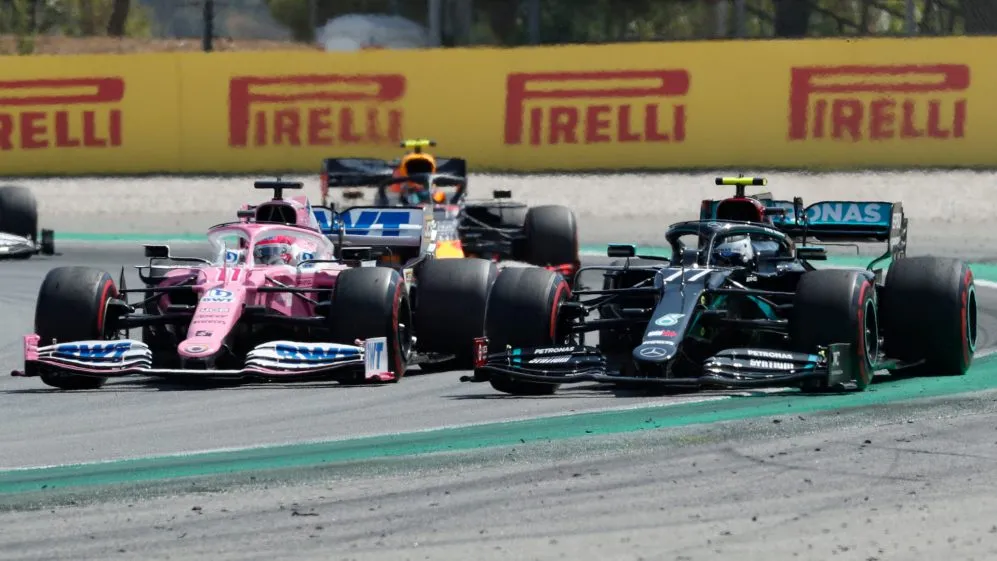
Al tratar de reducir los enormes costos de gestión que estaban envolviendo la Fórmula 1 en las últimas temporadas y que llevaron a la desaparición de algunos equipos la FIA no tuvo más remedio que poner un límite al uso de los motores.
De esa manera la norma reglamentaria fijó en tres (3) el número de motores que puede usar cada equipo en cada temporada sin ser penalizado. A partir del cuarto ya partes las sanciones que, en este caso, significa perder un importante número de puestos en la parrilla de largada, o incluso largar último.
Nadie puede dudar que en Sochi si Verstappen no hubiera cambiado el motor probablemente la lucha por la victoria hubiera sido más disputada y Hamilton no hubiera ganado con la comodidad que lo hizo.
Claro, suposiciones son solo eso, simples expectativas de lo que hubiera ocurrido en una situación distinta.
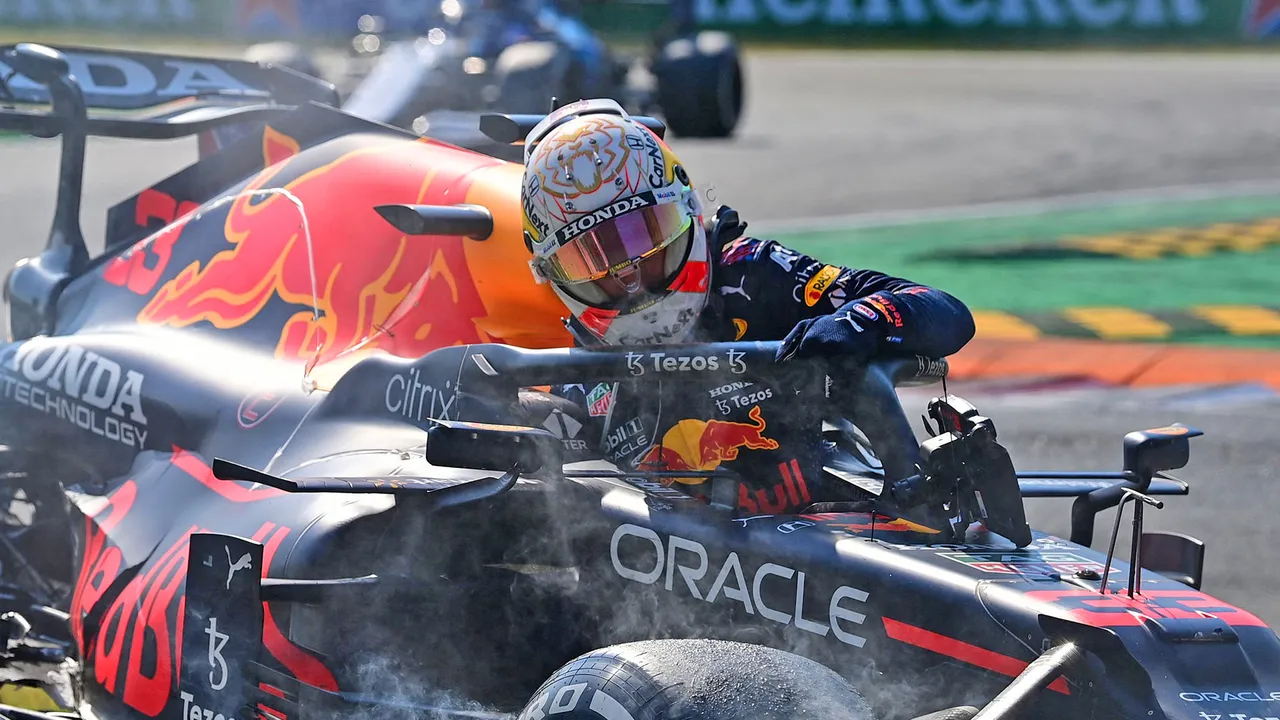
In an attempt to reduce the enormous management costs that were enveloping Formula 1 in recent seasons and that led to the disappearance of some teams, the FIA had no choice but to put a limit on the use of engines.
Thus, the regulatory rule set at three (3) the number of engines that each team can use in each season without being penalized. From the fourth engine onwards, penalties are imposed, which, in this case, means losing a significant number of places on the starting grid, or even starting last.
No one can doubt that in Sochi if Verstappen had not changed the engine probably the fight for victory would have been more disputed and Hamilton would not have won as comfortably as he did.
Of course, assumptions are just that, simple expectations of what would have happened in a different situation.
Un concepto nuevo, la unidad de potencia. / A new concept, the power unit.
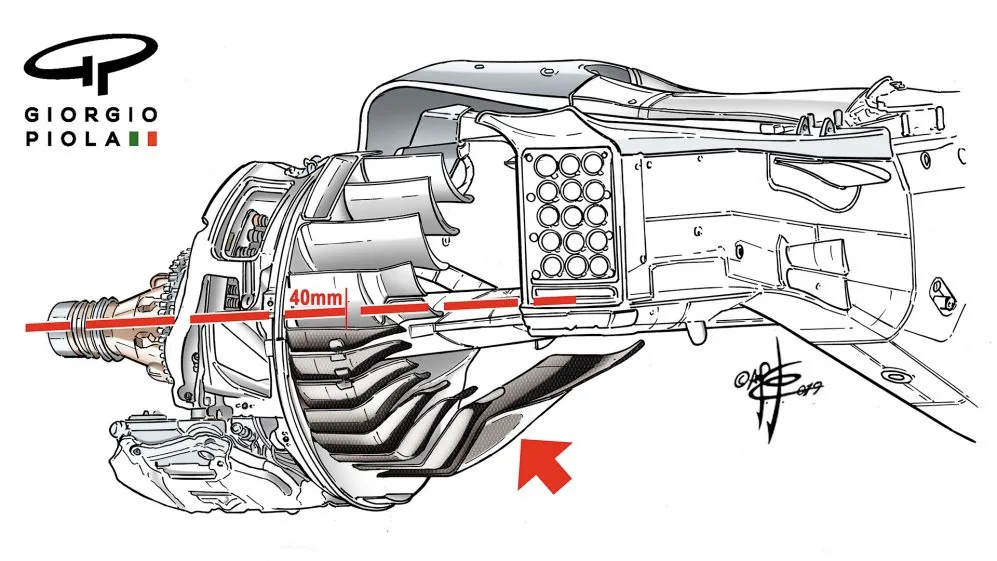
En realidad cuando hablamos de motor simplificamos mucho la esencia de este componente. En la F1 actual, tan compleja y tan técnicamente sofisticada, la palabra "motor" como unidad destinada a la propulsión de los monoplazas no existe. Por ese motivo se habla de "unidad de potencia" o en su traducción inglesa "unit power" que no es otra cosa que un complejo de elementos que comprende el motor de compresión, el turbocompresor, el MGU-H y el MGU-K que son dos sistemas para la recuperación de energía híbrida, una batería pdestinada a almacenar energía y una centralita electrónica, cada una con un tope o límite distinto de uso.
Hagamos un ejemplo: en la Fórmula 1 cada piloto puede usar hasta un máximo de dos centralitas electrónicas por temporada sin incurrir en sanción. Sin embargo si hablamos del motor de combustón cada piloto puede usar hasta un número máximo de tres motores de combustión interna por temporada si no quiere incurrir en sanción.
El problema se presenta en que es muy difícil cambiar solo el motor de combustión y dejar los restantes elementos sin alterar la óptima funcionalidad del monoplaza. En otras palabras, si quieren que el auto de el máximo generalmente los equipos optan por cambiar la "unit power" completa y eso significa solo una cosa: al fondo de la fila de largada.
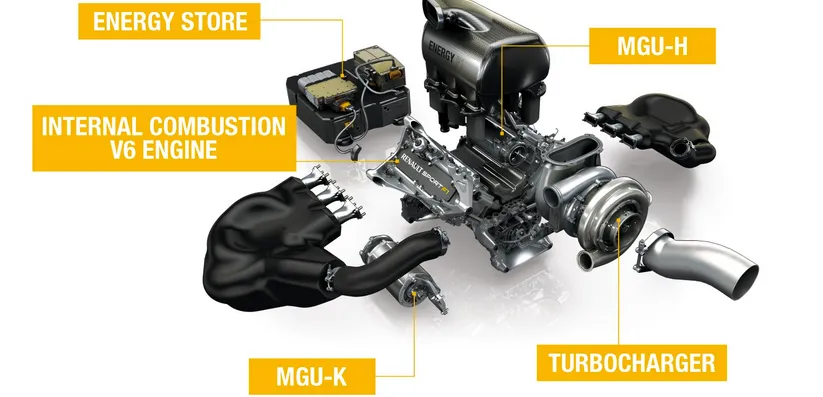
Actually when we talk about engine we simplify a lot the essence of this component. In today's F1, so complex and so technically sophisticated, the word "engine" as a unit destined to propel the single-seaters does not exist. For this reason we speak of "power unit" or in its English translation "unit power" which is nothing more than a complex of elements comprising the compression engine, the turbocharger, the MGU-H and MGU-K, which are two systems for hybrid energy recovery, a battery intended to store energy and an electronic control unit, each with a different limit of use.
Let's take an example: in Formula 1 each driver can use up to a maximum of two electronic control units per season without incurring a penalty. However, if we talk about the combustion engine, each driver can use up to a maximum of three internal combustion engines per season if he does not want to incur a penalty.
The problem is that it is very difficult to change only the combustion engine and leave the remaining elements without altering the optimal functionality of the car. In other words, if they want the car to perform at its best, teams generally opt to change the complete unit power and that means only one thing: at the back of the starting line.
Red Bull y Verstappen arrancaron primero. / Red Bull and Verstappen started first.
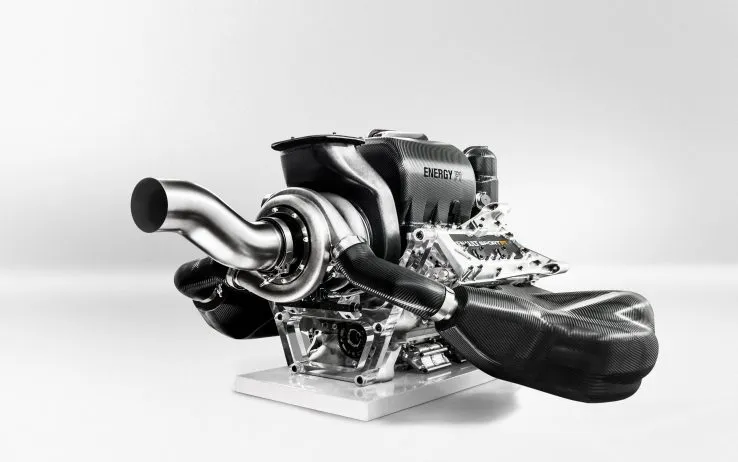
Por estrategia, por necesidad o por cábala porque el circuito de Sochi no se demostraba muy amigable (pero eran igualmente conscientes de ser superiores al resto) Red Bull y Verstappen decidieron hacer el primer cambio integral de la "unit power" en el circuito del GP de Rusia y la fortuna no dejó de sonreirles. Perdieron muy poco (la punta eso si, pero al fin y al cambo son lsolo los siete puntos que separan al primero del segundo) y tienen un motor nuevo.
Harán los mismo Hamilton y Mercedes en un circuito "amigable" a su auto u optaran por cambiar la unidad de potencia en el próximo GP de Turquía, un circuito que, "a priori" no beneficia a ninguna de ambos candidatos al título.
Por este motivo no es utópico suponer que la ventaja de Hamilton actual puede ser totalmente efímera considerando que en alguna de las futuras carreras deberá largar por fuerza detrás del holandés.
Los restantes pilotos y equipos parecen ir sufriendo el efecto de ir desvaneciéndose poco a poco. Para dejar el protagonismo absoluto a los dos candidatos.
Ni Pérez en Red Bull ni Bottas (con pocas carreras todavía en Mercedes) paracen estar demasiado interesados-o capacitados- pra ir a buscar la victoria.
Y Norris parece haberse arenado al igual que McLaren en un terreno del cuál no logra salir. Siempre ahí, detrás de los primeros, pero sin amenazarlos seriamente. A punto tal que la verdadera revelación de los últimos GP ha sido Russell el actual piloto de Williams y futuro compañero de Hamilton. Con un auto que hace poco comenzó a cosechar los primeros punbtos del campeonato.
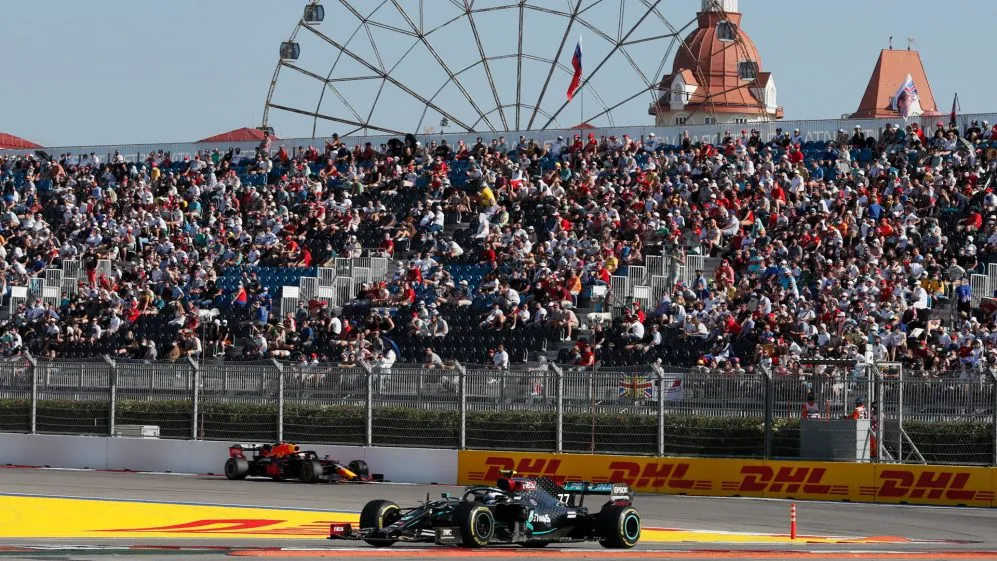
By strategy, by necessity or by cabala because the Sochi circuit did not prove to be very friendly (but they were equally aware of being superior to the rest) Red Bull and Verstappen decided to make the first comprehensive change of the "unit power" on the circuit of the Russian GP and fortune did not fail to smile on them. They lost very little (the lead, yes, but at the end of the day it is only the seven points that separate the first from the second) and they have a new engine.
Will Hamilton and Mercedes do the same on a circuit "friendly" to their car or will they opt to change the power unit at the next Turkish GP, a circuit that, "a priori" does not benefit either of the two candidates for the title.
For this reason, it is not utopian to suppose that Hamilton's current advantage may be totally ephemeral considering that in some of the future races he will have to start behind the Dutchman.
The other drivers and teams seem to be suffering the effect of fading little by little. To leave the absolute protagonism to the two candidates.
Neither Perez at Red Bull nor Bottas (with few races yet at Mercedes) seem to be too interested -or able- to go for the victory.
And Norris seems to have sandblasted himself and McLaren in a field from which he can't get out. Always there, behind the frontrunners, but without seriously threatening them. To such an extent that the real revelation of the last GP has been Russell, the current Williams driver and Hamilton's future teammate. With a car that recently began to harvest the first points of the championship.

El separador de párrafos -modificado por el autor- es propiedad del usuario @thepeakstudio. A él mi agradecimiento por el excelente material gráfico puesto a disposición de la Comunidad.
The paragraph separator -modified by the author- is property of the user @thepeakstudio. To him my thanks for the excellent graphic material made available to the Community.
El banner titulado Reseñas Deportivas / Sports Reviews personalizado por el autor es propiedad de PNGWing.
The banner titled Reseñas Deportivas / Sports Reviews customized by the author is property of PNGWing.

